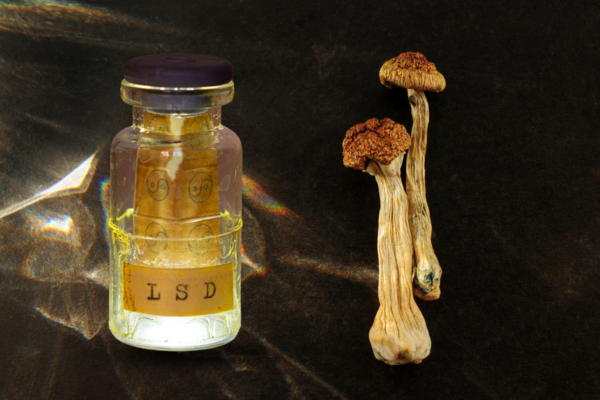
Great news for those researching new treatments for depression in cancer patients! Positive long-term follow-up data has just been released from Sunstone Therapies’ investigator-initiated Phase 2 study assessing COMPASS Pathways’ synthetic psilocybin.
Administering a single 25mg dose of psilocybin paired with psychological support has resulted in 57% of patients sustaining remission of depression, with 64% experiencing a robust clinical response 18 months later.
Remarkably, this data is believed to be the longest-term follow-up, adding further support to the already impressive results from the original Phase 2 trial completed in 2021.
Sunstone completed the phase 2 study in 2021 and published its results in JAMA Oncology this year.
The study involved 30 patients, both curable and incurable cancer, who were given a fixed dose of 25mg of the COMP360 psilocybin. Each cohort of patients was administered the drug in a one-on-one therapist/patient ratio, with an additional group preparation session and two group integration sessions supplemented by individual therapy. The results of the study were evaluated at 8 weeks post-dose, with promising indications that patients experienced reduced anxiety and depression.
Out of the total 30 patients who participated in the study, 28 completed the 18-month assessment. Among those 28, 18 patients (64%) maintained a positive response throughout the entire 18-month period, while 16 patients (57%) experienced remission of their depression.
In patients with cancer and major depressive disorder, a single dose of psilocybin therapy with psychological support showed mostly strong beneficial effects or complete remission from depression based on the MADRS scale values.
According to Guy Goodwin, the Chief Medical Officer of COMPASS Pathways, “This study conducted by Sunstone Therapies is extremely encouraging and demonstrates the potential durability of COMP360 psilocybin therapy. COMPASS Pathways is looking at the long-term effects of COMP360 in our phase 3 programme in treatment-resistant depression.”
What makes this study promising is that it shows that COMP360 psilocybin therapy may have long-lasting effects. The use of psilocybin for major depressive disorder, treatment-resistant depression and other mental health ailments has been a growing area of interest among researchers, and this study could be a major breakthrough in the psychedelics field. It can also be used as support for evidence of the benefits of psilocybin therapy in decriminalization efforts across the USA and globally.
COMP360 is currently being studied in Compass’ landmark Phase 3 clinical trials for its potential to treat Treatment-Resistant Depression (TRD). Anticipation grips us all as we wait for the results which, if positive, may be able to propel psychedelic-assisted therapy into a new era of possibility. The two Phase 3 trials have a total of 946 participants, which is a significant milestone in psychedelic medicine research. If these trials are successful, Compass will work with the FDA to potentially approve psilocybin for treating TRD by 2025, fueling the flame of transformation in the mental health and psychedelics fields.
Yes, we all know that Compass Pathways has been subject to scandals involving patenting a synthetic version of psilocybin. This definitely spiked some polarization between the scientific and psychonaut community. However, we shouldn’t dismiss that the company is one of the furthest advanced in the space and granted it’s largest trial provides positive data supporting what we already know about magic mushroom’s potential to heal debilitating diseases, this highly scrutinized company will be one of the first companies moving the psychedelics industry forward and public opinion surrounding these substances.
You may also like: Compass Pathways Study Finds SSRI Drugs Did Not Impede Psilocybin’s Therapeutic Effect





